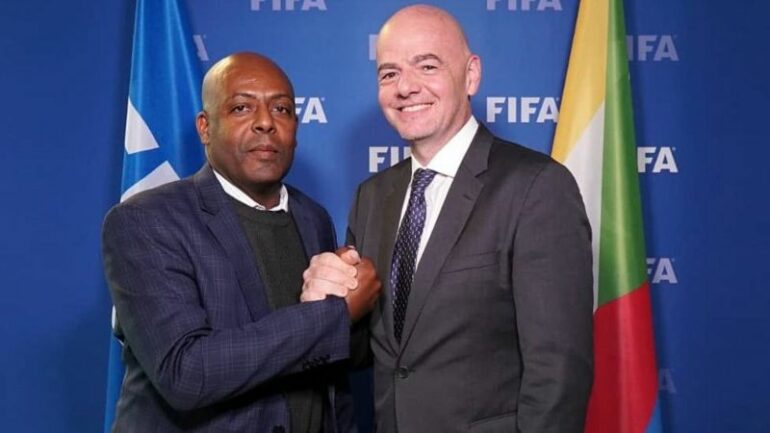A suspended FA president is running unopposed. And why has Fifa's Head of Member Associations Veron Mosengo-Omba travelled to Comoros in the middle of the pandemic to make sure the election goes ahead on 30 January?
By Philippe Auclair
Seen from the outside, this is encouraging news for the small Indian Ocean nation: after two years of strife, scandals and controversy, Comorian football will have a new FA president on 30 January. The normalisation committee (CoNor) set up by Fifa to run the island's football affairs will then have fulfilled the mission it had been given on 23 October 2019 (*), and things will return to normal.
The problem is that this new 'normality' is nowhere near to be seen on the ground. The election should not take place, to start with. The member of the normalisation committee Fakriddine Youssouf Abdoulhalik has just died from COVID-19, and another member of CoNor, Adfaon Hamada Bacar, cannot leave the island of Moheli, where he resides, as all transport links have been suspended - which leaves three of the five members of the Committee to supervise the proceedings, which will take place in a country which has been hit by the South African variant and where the pandemic is running out of control.
Yet the annual general meeting of the FFC (the Comorian FA) will proceed on 30 January as planned, when all football games as well as the inauguration of a Fifa-financed synthetic pitch have been postponed. What's more, all gatherings of more than 20 people are prohibited in the country. Around 70 delegates were supposed to attend the AGM. In this devout Muslim country, the situation is so dangerous that all mosques have been closed until ...



